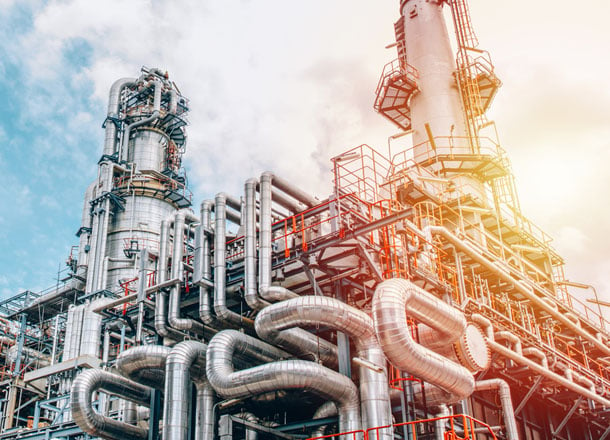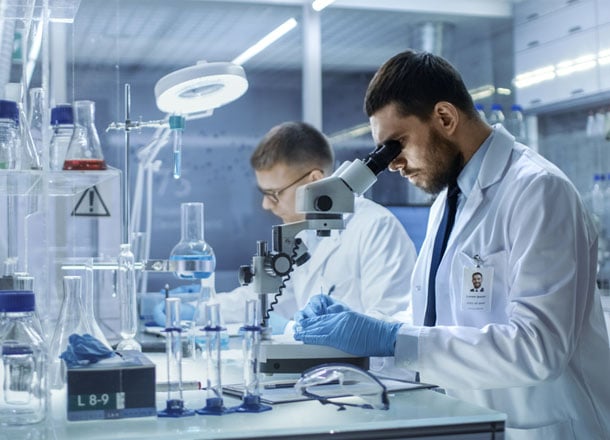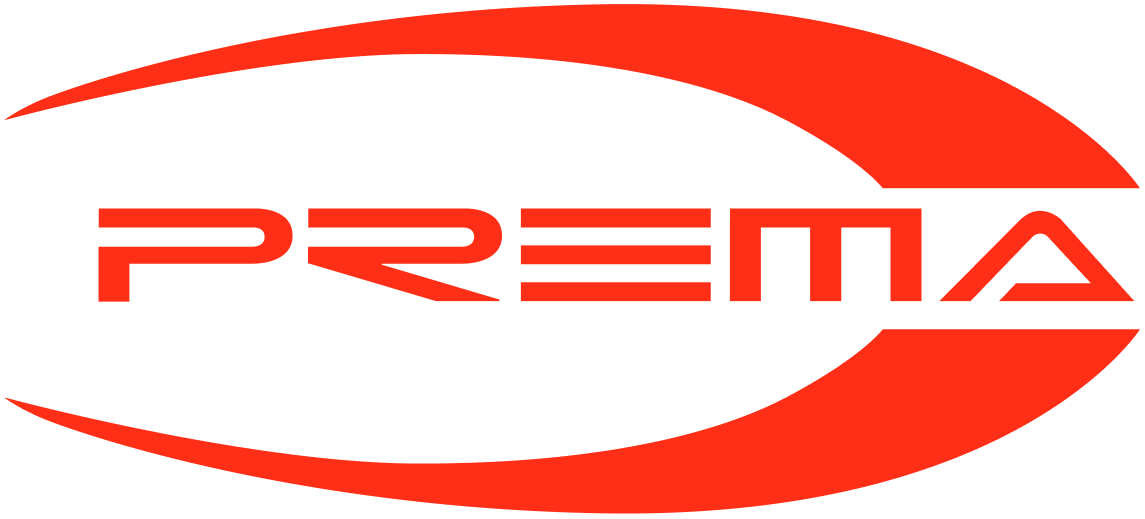In addition, compressed air is used in oil and gas storage terminals, where products are pumped to land from ships or other means, and in pneumatic conveying systems which, thanks to compressed air, handle chemicals safely, without contamination.

Choosing an air compressor must hinge on the specific production and environmental characteristics of this industry.
The chemical and petrochemical industries use compressed air in many critical applications: in equipment that supplies production lines, in the compression of gases that must be pumped into the pipeline, to reduce the volume of gases for storage purposes, for handling, cleaning, nitrogen generation required in many chemical processes, in cleaning and aeration processes of products or in mixing procedures to accelerate their drying.
Among the solutions Mattei offers:

In addition, compressed air is used in oil and gas storage terminals, where products are pumped to land from ships or other means, and in pneumatic conveying systems which, thanks to compressed air, handle chemicals safely, without contamination.
Both chemical production processes and petrochemical applications must meet very strict safety standards: they use toxic and explosive, corrosive and changeable substances; therefore, compressed air must be absolutely free from contaminations (such as dust or oil residues) and dry to avoid reacting with these substances.

The chemical industry often processes powdery substances or granules that are conveyed through compressed air along processing or dosing points in the production plant. In these phases, the compressed air must be completely dry in order to prevent powders and granules from aggregating due to moisture. In addition, in the chemical processes of these industries compressors must ensure operational continuity and flow stability to ensure that the supply takes place without interruptions or changes in flow.
Despite the importance of compressed air in the chemical and petrochemical industries, very often the compressor rooms at the production sites are characterised by very low levels of energy efficiency, with a consequent increase in operating costs.

Mattei's innovative rotary vane compressor technology, characterised by the low speed of rotation of the air end, the high volumetric efficiency and the total absence of rolling bearings or thrust bearings, results in energy savings of more than 15% compared to other rotary compressors, offering companies a valid opportunity to save money and reduce environmental impact. Moreover, the reduced maintenance needs allow for Mattei’s compressors to operate for over 100,000 hours with no need to replace components of perform significant overhauls. Mattei compressors stand out for the lowest Life Cycle Cost on the market.
Mattei's wide range of compressors offers solutions that meet the needs of the chemical and petrochemical industries thanks to the following characteristics:



